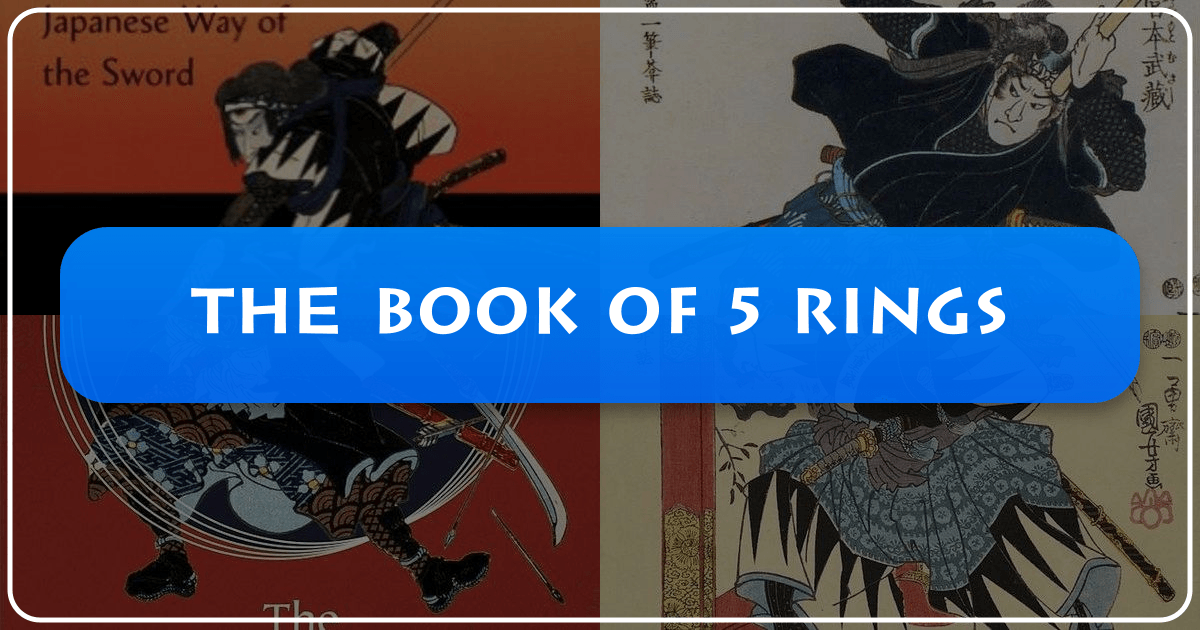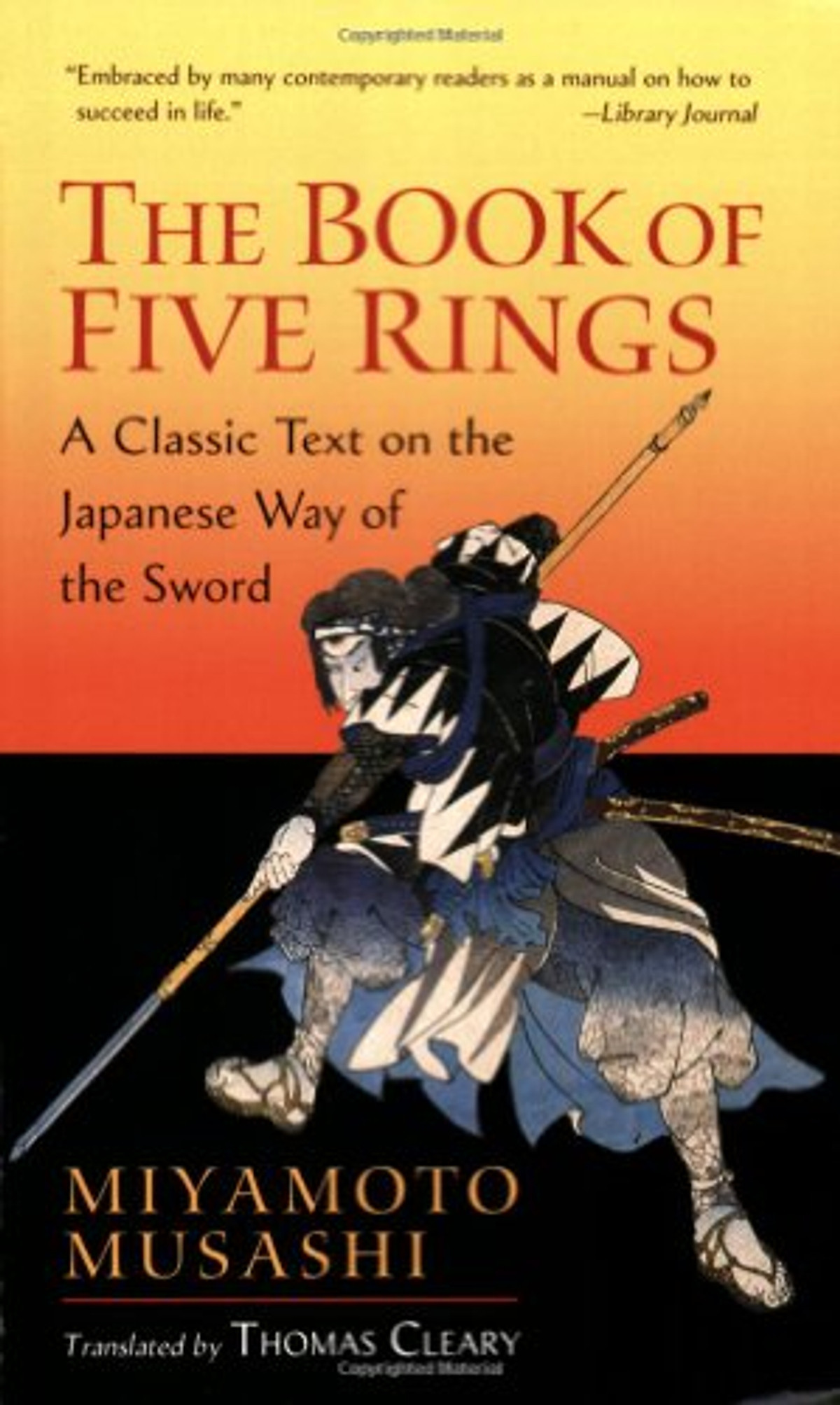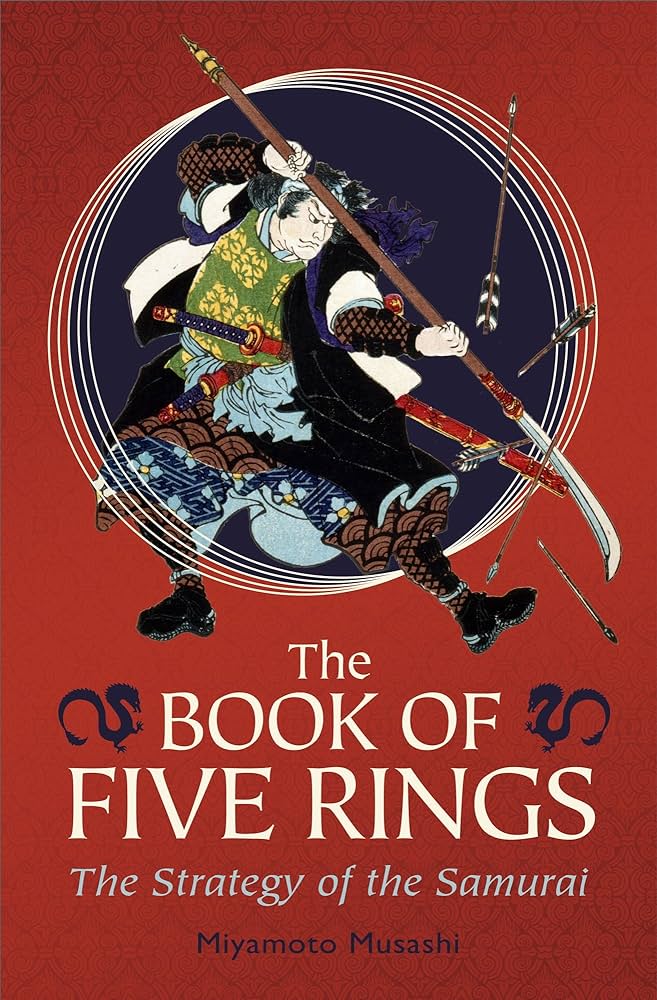The Book of Five Rings: A Timeless Guide to Strategy and Success

Miyamoto Musashi’s The Book of Five Rings (Gorin no Sho) transcends its origins as a 17th-century samurai text on swordsmanship. This seminal work, penned by the legendary undefeated swordsman, offers profound insights into strategy, tactics, and the philosophy of conflict applicable far beyond the battlefield. Its enduring relevance is reflected in its continued study across diverse fields, from business and leadership to personal development and self-improvement. This exploration delves into The Book of Five Rings, examining its content through the lens of modern book-related themes, exploring its lasting cultural impact and the various ways in which its core principles can be applied to contemporary life.
The Book Itself: A Literary and Strategic Classic
The Book of Five Rings is not merely a manual of combat; it’s a sophisticated exploration of the mental and spiritual aspects of mastering any conflict. Structured into five scrolls – Earth, Water, Fire, Wind, and Void – each section tackles a different facet of strategy and warfare. The text is concise, poetic, and intensely practical, reflecting Musashi’s own rigorous self-discipline and unwavering commitment to mastery. The book’s enduring appeal lies in its ability to translate seemingly esoteric martial concepts into universally applicable strategic principles.

Genre and Classification
While categorized as a work on martial arts and strategy, The Book of Five Rings defies simple genre classification. It blends elements of philosophy, self-help, and business strategy, making it a unique and multifaceted text. Its strategic insights have earned it a place among business classics, studied by executives for its illumination of decision-making and competitive advantage. Simultaneously, the book’s self-help aspects resonate with readers seeking personal growth and self-mastery, regardless of their professional background.

Translations and Editions
The original manuscript is no longer extant, leaving scholars and publishers to work with existing copies, leading to variations in translation. This has resulted in numerous editions and interpretations of Musashi’s work, each offering its unique perspective. Some translations emphasize the technical martial arts aspects, while others focus on the broader strategic principles. The availability of multiple versions, including manga adaptations, further underlines the book’s versatility and its capacity to appeal to diverse audiences. Readers should carefully consider the translator’s approach when selecting a version, as different interpretations can significantly impact the reader’s understanding and application of the text.
Miyamoto Musashi: The Author and His Legacy

Miyamoto Musashi (c. 1584–1645) remains one of history’s most enigmatic and celebrated figures. His undefeated record in over sixty duels cemented his legendary status as a swordsman, but The Book of Five Rings reveals a deeper intellectual depth beyond his martial prowess. Musashi’s philosophy, deeply rooted in Zen Buddhism and his personal experiences, emphasizes self-reliance, rigorous training, and strategic thinking.
Musashi’s Writing Style and Inspirations
Musashi’s writing style is as unique as his swordsmanship. He eschews elaborate theoretical explanations, preferring concrete examples and concise, almost aphoristic pronouncements. His writing reflects a practical, experiential approach to learning, echoing the Zen Buddhist principle of direct experience over abstract theorizing. His inspirations are drawn from his own battles, observations of nature, and a profound understanding of human psychology.
Famous Works and Literary Influence
While The Book of Five Rings is undoubtedly his most famous work, Musashi also left behind a legacy of other writings, showcasing the breadth of his knowledge and perspectives. These works, though less widely read, offer further insights into his philosophical leanings and his approach to life. The book’s influence has extended beyond the martial arts world, inspiring writers, artists, and business leaders worldwide. Its enduring power lies not only in its strategic insights but also in its inspirational message of self-cultivation and relentless pursuit of excellence.
Reading and Learning from The Book of Five Rings: Practical Application
The value of The Book of Five Rings extends beyond mere historical or academic interest. The text offers invaluable practical lessons applicable to various aspects of life, fostering personal and professional growth.
Summaries and Educational Value
Numerous summaries and analyses of The Book of Five Rings are available, offering different perspectives and levels of detail. These resources cater to various learning styles and time constraints, making the book’s essential wisdom accessible to a broad audience. The educational value extends beyond strategic thinking; it promotes critical self-reflection, emphasizing the importance of understanding oneself and one’s environment to achieve success.
Life Lessons and Reading Habits
The book delivers a wealth of life lessons, emphasizing self-reliance, disciplined practice, and strategic thinking. Its core tenets can be applied to conflict resolution, problem-solving, and personal growth. Readers can adapt the book’s approach to cultivate self-awareness, improve decision-making, and navigate complex situations more effectively. Developing a mindful reading habit—slow, deliberate engagement with the text—is crucial to fully grasp Musashi’s profound insights.
The Book of Five Rings in Libraries and Archives: Preserving a Legacy
The significance of The Book of Five Rings is also reflected in its presence in libraries and archives around the globe.
Public and Digital Libraries
The book is readily available in various translations in public and digital libraries worldwide. This accessibility ensures that Musashi’s wisdom remains accessible to a broad range of readers, facilitating the study and application of his strategic principles.
Rare Collections and Archives
Original or particularly rare editions of the book are likely housed in specialized collections and archives dedicated to Japanese history, martial arts, or literary history. These repositories play a vital role in preserving and showcasing the historical and cultural significance of this important text. Their holdings allow scholars to delve into the history of the text itself, examining variations in different copies and tracing its evolution over time.
The Cultural Impact of The Book of Five Rings: Enduring Influence
Musashi’s work has exerted a significant influence across various aspects of Japanese and global culture.
Literary Influence and Adaptations
The Book of Five Rings has served as a rich source of inspiration for numerous literary works, films, and video games. These adaptations highlight the book’s enduring appeal and its capacity to resonate with contemporary sensibilities. They often reinterpret Musashi’s strategic principles within different contexts, demonstrating their applicability to diverse narratives and character arcs.
Awards and Communities
While the book may not have received traditional literary awards in the Western sense, its recognition within business and self-help communities speaks to its enduring influence. Numerous discussion forums and communities dedicated to The Book of Five Rings facilitate the exchange of ideas and interpretations, enriching its ongoing relevance.
In conclusion, The Book of Five Rings is more than just a historical document; it is a living testament to the enduring power of strategic thinking, self-mastery, and the pursuit of excellence. Its influence extends far beyond its original context, offering valuable insights for readers across various disciplines and walks of life. The book’s continued availability in libraries, its adaptation into diverse media, and the vibrant online communities dedicated to its study all speak to its lasting cultural significance and ongoing relevance in the 21st century.